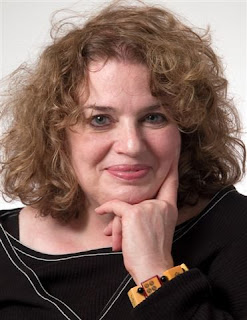I’ve been working on a interview project with Deborah at 32 Poems magazine, and she kindly allowed me to interview past contributors to the magazine. We will be posting the interviews throughout the coming months, and our first interview posted on Deborah’s Poetry Blog of 32 Poems on Jan. 21.
I’m going to provide you with a snippet from the interview, but if you want to read the entire interview, I’ll provide you a link for that as well.
For now, let me introduce to you 32 Poems contributor, Andrea Hollander Budy:

Yes, not only do I write, but guide others both as the Writer-in-Residence at Lyon College and, during the summers, at a variety of writers’ conferences. I also work one-on-one as a long-distance writing tutor (via the mail and telephone). But at all times I wear the same “hat,” because even when I teach others, I do so as a colleague who has enough experience with the craft of creating poems that I can provide insight into the process and help my students or tutees grow stronger as writers and revisers of their own work. Creating one’s own poems is indeed a continual challenge. But whether I am teaching others about this challenge or facing my own blank page, the important point is to enable myself and others to do the best work through continual devotion to doing the work in the first place.
2. Do you have any obsessions that you would like to share?
It’s the writing itself that reveals my deeper obsessions to me. If I am obsessed with anything, it’s with the process of writing itself, with the joy of making discoveries through writing, and with the pleasures of learning through reading the work of others, as well.
3. I noticed that much of your poetry has been categorized as conversational in tone. Do you believe that to be an accurate depiction. Why or why not? Has this always been the style you’ve used?
I have always tried to write as clearly as possible in language that is free of decoration. A poem is already by its nature a dense enterprise — relatively few words attempt to engage readers and provide a compelling experience — and while I don’t wish to write simplistic poems, I do want readers to easily enter a poem and to discover there something valuable not only the first time they read or hear it, but for them to want to enter the poem again and again and to be ushered more deeply into it each time.
About the Poet:
Born in Berlin, Germany, of American parents, raised in Colorado, Texas, New York, and New Jersey, and educated at Boston University and the University of Colorado, Andrea Hollander Budy is the author of three full-length poetry collections: Woman in the Painting, The Other Life, and House Without a Dreamer, which won the Nicholas Roerich Poetry Prize. Other honors include the D. H. Lawrence Fellowship, a Pushcart Prize for prose memoir, the Runes Poetry Award, two poetry fellowships the National Endowment for the Arts, and two from the Arkansas Arts Council. Most recently Budy received the 2008 Subiaco Award for Literary Merit for Excellence in the Writing and Teaching of Poetry.
Want to find out what Andrea’s writing space looks like? What music she listens to while she writes? How she stays fit? and much more? Check out the rest of my interview with Andrea here.
 Nikki Leigh contacted me about hosting
Nikki Leigh contacted me about hosting 







 Miriam at Hatchette Group sent Cross Country by James Patterson for my review. However, while I’ve been an avid James Patterson reader for some time, I decided to have the biggest James Patterson fan I know review it. My mom, Pat, offered to review the book for me. I’m sure my review will follow sometime in 2009.
Miriam at Hatchette Group sent Cross Country by James Patterson for my review. However, while I’ve been an avid James Patterson reader for some time, I decided to have the biggest James Patterson fan I know review it. My mom, Pat, offered to review the book for me. I’m sure my review will follow sometime in 2009.






